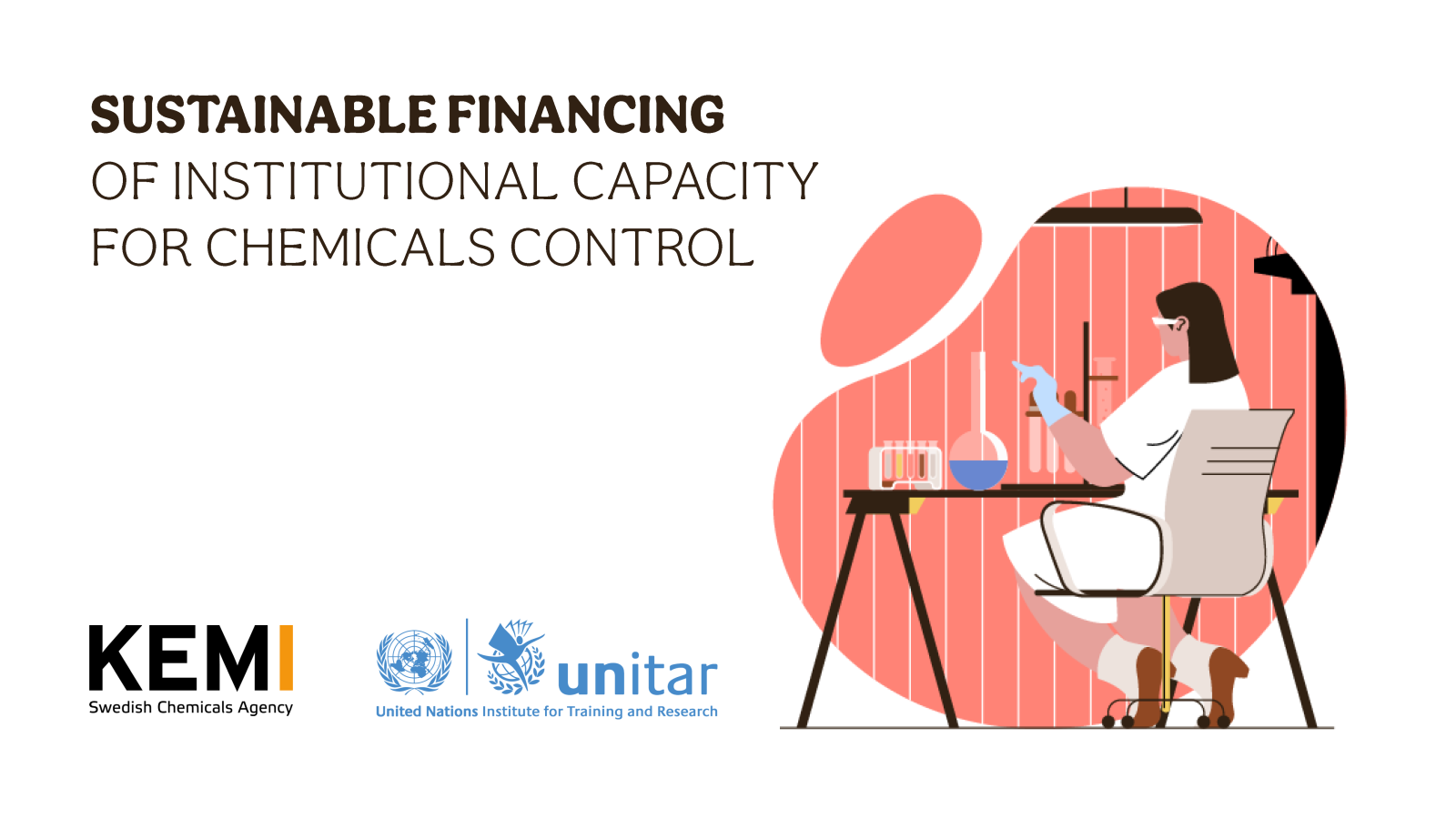
Sustainable Financing of Institutional Capacity for Chemicals Control
KEMI
After taking the course, participants will be able to:
- Explain the term “institutional capacity” in the context of chemicals management
- Explain and compare different roles and responsibilities of companies, downstream users, and governments, and the implications for financing
- Describe different methods of financing institutional capacity for chemicals management and analyse their suitability in different contexts
- Describe the reasons for the need for stable and sufficient financing of institutional capacity
This course is based on the Swedish Chemical Agency’s - KemI - publication on “Sustainable financing of institutional capacity for chemicals management”,
one of a series of documents developed to complement the UNEP Guidance on the Development of Legal and Institutional Infrastructures and Measures for Recovering Costs of National Administration (LIRA Guidance) by giving more detailed guidance in different areas.
The aim of this course is to assist governments in developing countries to establish sustainable financing of the institutional capacity linked to the management of chemicals placed on the market.
Module 1 - What is to be financed? What is institutional capacity?
Content
1. Roles and responsibilities of industry and government
2. How to divide the activities and related costs
3. Efficiency within the national administration
4. The use of existing data reduces costs
Module 2 - How to finance? Options for financing of national administrations
Content
1. National budget allocation
2. Cost recovery fees
3. Comparing the funding options
Module 3 - Why finance? Economic arguments for financing preventive chemicals control
Content
1. Adequate and stable financing is a prerequisite for managing chemical risks
2. Benefits of preventive chemicals control outweigh the costs (costs of inaction are far higher)
Module 4 - Designing a financing system
Content
1. The legal basis
2. Levels for fees and taxes
3. Monitoring and enforcing
The course, about 45 minutes to complete, is self-paced and adapted to the schedule of full-time working professionals. Participants are provided with the opportunity to learn through various experiences: absorb (read); interact (activity); and reflect (relate to one’s own reality). This includes videos, interactive lessons, reading materials and quizzes.
Despite being self-standing, the 4 modules of the course must be completed in order.
Each module concludes with a quiz which will assess the knowledge learners will acquire. If learners pass the quiz with a 100% mark, a certificate of completion will be issued to them.
Participants will be requested to provide feedback on the course by filling in a feedback form after completing all the modules, accessible anytime.
This course is targeted at national chemicals officials but is intended to be of interest to a broad range of sectors and stakeholders involved in chemicals management at the national level (e.g. agriculture, environment, health, labour, trade and industry, transport).
It may be of particular relevance to senior officials responsible for financing national administration.
The course can be completed on any computer (Windows and Mac) or mobile device. Any internet browser is compatible as long as it has been updated to its latest version.

